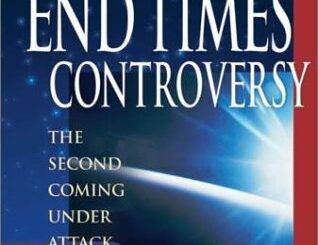Scripture References:
2 Samuel 11:1-27, 2 Samuel 12:1-24, 2 Samuel 12:28-31, 1 Kings 1:11-31; 1 Kings 1:21, 1 Kings 2:13-25, Matthew 1:6
Name Meaning:
The daughter of an oath or The Seventh Daughter
Introduction:
There are many commentary writers and pastors who give a very negative view of Bathsheba, blaming her for all of King David’s woes and sins. But is Bathsheba truly to blame? Or is she only a portion of the story, partially responsible for the sins we read of in 2 Samuel?
Lesson:
We are first introduced to Bathsheba in 2 Samuel. She is the beauty that King David beholds as he sits home waiting for news of the war being waged for Israel.
At the beginning of our story, we find that Bathsheba was seen bathing. It is late at night, and she is purifying herself after having recently menstruated. Her husband is away at war (where King David should have been, also), and she is being obedient to the Law and doing the required routine cleansing.
In those days, bathing was not a regular process like it is for us today. It took a lot of effort to haul enough water to bathe from a well to one’s home. Bathing typically took place in a courtyard or if they were not hauling water, in a nearby river or body of water. In Bathsheba’s case, she bathed in her courtyard. Unfortunately, David was able to see into this courtyard from the roof of his palace. She was not an exhibitionist, nor was she trying to be one. She was not being a temptress or seductress. She was cleansing after her period, as outlined by the Law.
Often the blame is placed on Bathsheba for what happened next. The blame should be placed on David because the Bible says that he saw her in the spring of the year when the kings went out to battle. Yet he sat at home instead of joining his soldiers on the battlefields. (2 Samuel 11:1) It also happened at night, when most people are sleeping. Her bathing time was done in the privacy of her home when it was dark outside.
He inquired about her, finding out her name and that she was married to Uriah, who served as a high-ranking military leader for him. He KNEW she was married, yet he called for her regardless.
Guess what? She is also usually blamed for sleeping with David. But would YOU reject the king, who has the power to do as he wishes? He did not have romantic intent –it was lust. He slept with her, and she returned home (2 Samuel 11:4). It was an affair, a one-night stand – and both were married individuals.
David sent her home after. But what is done in the dark always comes to light. She finds herself pregnant. Can you imagine the panic of finding yourself pregnant… knowing what has happened, and knowing that everyone knows your husband is off to battle and has been for a while? According to the Law she should have been put to death immediately for infidelity, as should David. She sends word to the King to let him know (since he IS the baby’s father).
Rather than accepting responsibility for his actions David sends for Uriah and sends him home to be with his wife. Unfortunately for David, Uriah does not cooperate (2 Samuel 11:9-10). David’s sins are not covered up as he had hoped. David tries to get him drunk and sends him home expecting him to lay with his wife, but again Uriah doesn’t comply. David sends him back to battle, ensuring he is killed on the frontlines. David has this man murdered. After the proper amount of time for mourning David sends for Bathsheba and takes her as his own wife. (2 Samuel 11:26-27). Bathsheba did not set this up – she is still doing the king’s bidding as his subject. She becomes his wife, and a son is born to them.
Despite all the lying and scheming to try to cover up this sin God still sees it and knows. Nathan the prophet brings a message to David regarding these sins… 2 Samuel 12:9-12 He calls David out and pronounces judgment on him and his descendants. David repents, but there are still consequences to sin. The baby dies. Bathsheba mourns this child’s death and David goes to comfort her. (2 Samuel 12:24) They come together again, this time as husband and wife, and conceive – this child being Solomon, the wisest man of all times.
Bathsheba gained power and influence during her time with David. Her son, though not firstborn or even born of the first wife, becomes the next King. She also has great influence on her son who not only rises to greet her but bows to her and lets her sit at his right hand – a sign of power and authority.
This woman was obviously one of importance in the history of Israel. She bore one of the wisest men of all times, birthing a king that would live forever in our history and minds. Her name is often tarnished, but the Bible is clear about the events as they transpired. She does not deserve that reputation. She is a woman who respected the Law, a woman who was a victim, abused by a sinful King, yet redeemed by God to produce a famous King of Israel and was rewarded a seat of honor.
What can we learn from this woman? What can we pull from this story to help us in our own lives today?
We see grace in Bathsheba’s life. She overcame the horrors of the injustice done to her. She had her body abused by a king that lusted for her, lost her husband, was forced to marry the king, lost a baby, yet somehow she developed a relationship with her husband who comforted her at the loss of their child and gave one of her remaining sons the throne before his death. Forgiveness and grace are evident in her story. You, too, can be healed of past injustices and let go of them and grow.








Be the first to comment